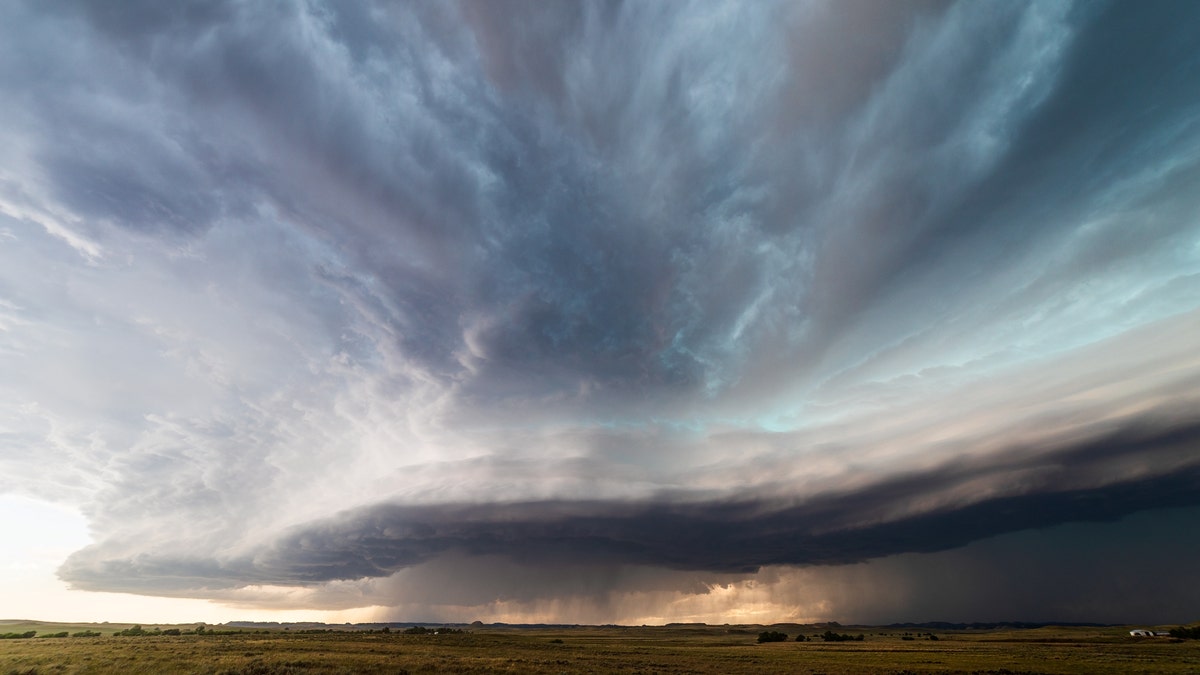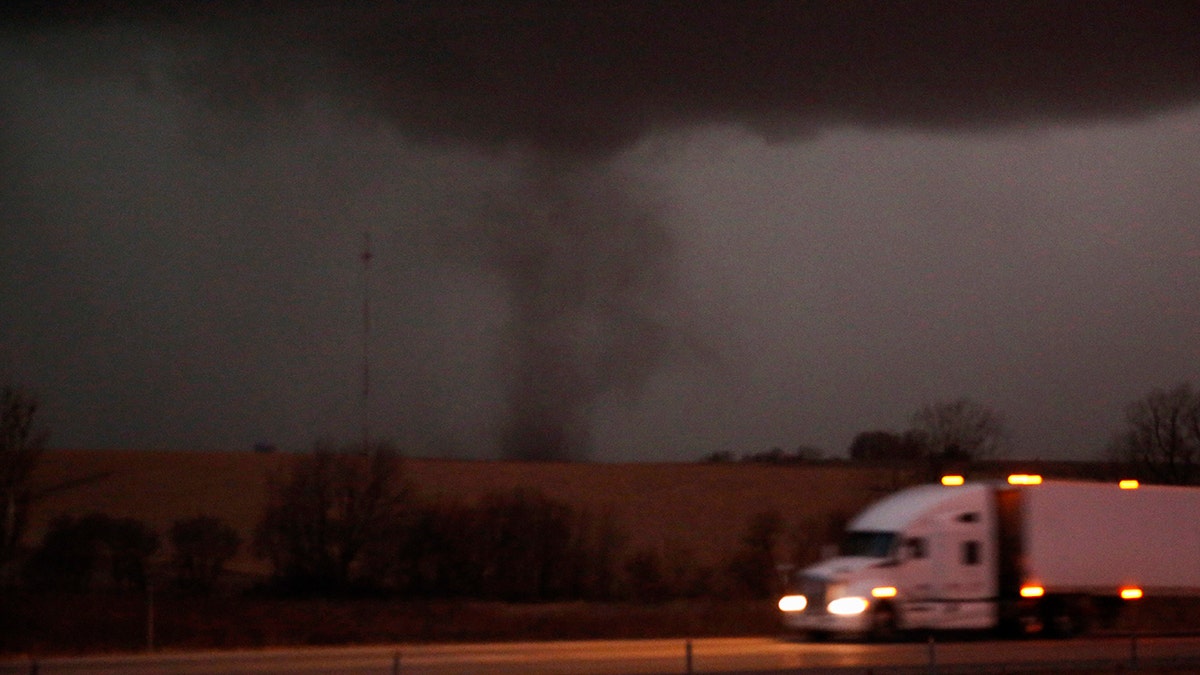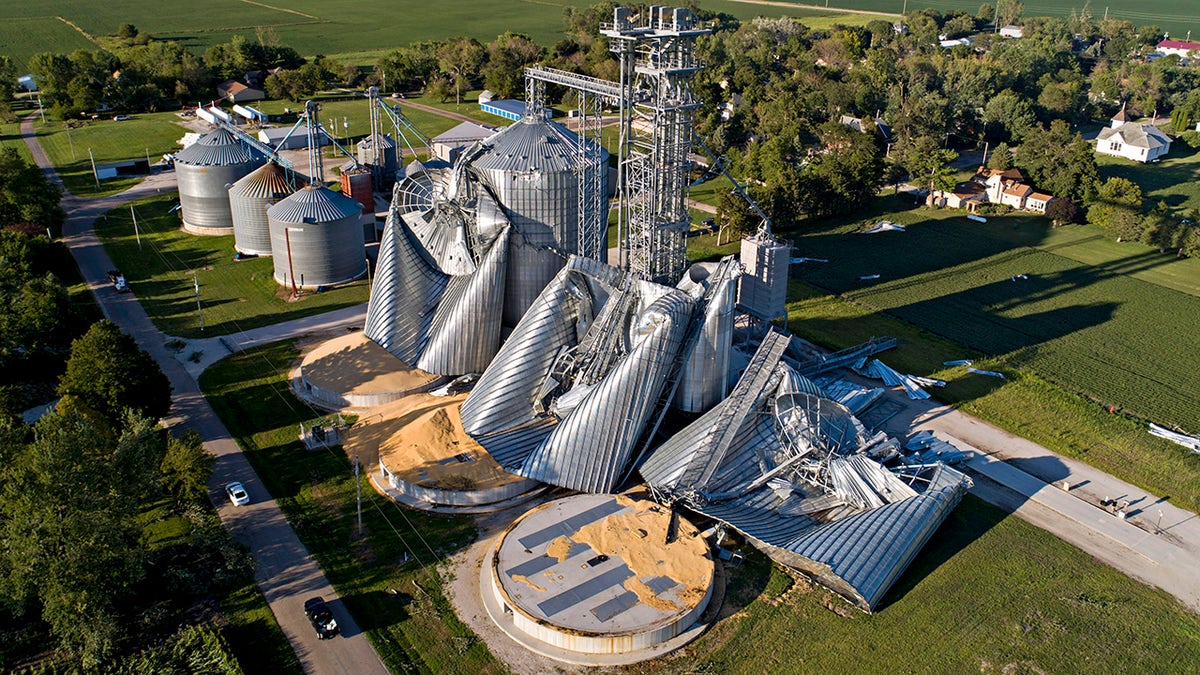Fox News Flash top headlines for July 16
Fox News Flash top headlines are here. Check out what's clicking on Foxnews.com.
Monday's deadly and destructive summertime storm that wreaked havoc on the Midwest is known as a "derecho" — but what exactly is this, and where did it get its name?
A derecho is "a widespread, long-lived windstorm that is associated with a band of rapidly moving showers or thunderstorms," according to the National Weather Service (NWS).
Although a derecho can produce destruction similar to that of tornadoes, "the damage typically is directed" in one way "along a relatively straight swath," the service also said.
RARE SOLAR STORM WOWS STARGAZERS ACROSS AMERICA: 'SO AWESOME!'
"Straight-line wind damage" is sometimes used to describe derecho destruction.
The NWS said that if the wind damage swath extends more than 240 miles and includes wind gusts of at least 58 mph along most of its length, the event may be classified as a derecho.
Derecho leaves damaging mark on Midwest
Monday's derecho left a trail of damage stretching nearly 500 miles extending from Indiana to Iowa, including the Chicagoland area, FOX Weather reported.

Fallen trees are pictured outside a home after a severe storm slammed Iowa on Monday. (Cody Scanlan/The Register/USA TODAY NETWORK)
The derecho toppled trees, snapped utility poles and ripped the roofs off buildings.
Thousands of utility customers across the region were left without electricity, with nearly 400,000 power outages at the peak of the storm, FOX Weather reported.
The NWS in Chicago issued 16 tornado warnings on Monday.
That's the third-most in a single day by the NWS in Chicago in a single day and the most since a record-setting 19 were issued more than 20 years ago on April 20, 2004.
RARE STORM LEADS SURGE OF MORE THAN 500 BABY SEA TURTLES TO SOUTH AFRICAN AQUARIUM
There was also at least one fatality. A report from Fox 32 in Chicago said that a 44-year-old woman in Cedar Lake, Indiana, was killed when a tree fell on her house.
Derecho means ‘direct’ or 'straight ahead'
The term "derecho" originated in 1888. Dr. Gustavus Hinrichs, a professor of physics at the University of Iowa, coined the term, according to the NWS's Storm Prediction Center.
"Derecho" is a Spanish word meaning "direct" or "straight ahead."

The term "derecho," a Spanish word meaning "direct" or "straight ahead," was coined by Dr. Gustavus Hinrichs at the University of Iowa. (iStock)
Hinrichs used the term in a paper published by the American Meteorological Journal to distinguish thunderstorm-induced straight-line winds from the rotary winds of tornadoes.
A facts page dedicated to the derecho on the SPC's website indicates the term disappeared from use for nearly 100 years until meteorologists Robert Johns and William Hirt resurrected it in a 1987 study.
Derechos pose specific threats
Because derechos are most common in the summer months, people involved in outdoor activities are the most at risk, according to the SPC.
Anyone attending fairs and festivals could be injured or killed by collapsing tents and flying debris.
CLICK HERE TO SIGN UP FOR OUR LIFESTYLE NEWSLETTER
Campers or hikers are vulnerable to being injured or killed by falling trees, as well as boaters who risk injury or drowning from high waves that can overturn vessels, the SPC said.
Derechos are summertime storms
Derechos are more prevalent in the "warm" season – the months of May, June, July and August, as defined by the NWS.
That's when 70% of all derechos occur, according to the NWS.
CLICK HERE TO GET THE FOX NEWS APP
Although they're rare west of the Great Plains, isolated derechos have occurred in interior portions of the western U.S., especially during the spring and early summer.

Most derechos occur in the summertime during the "warm" season, according to the National Weather Service. (Bryon Houlgrave/The Des Moines Register via AP)
They are most common in the Midwest.
A derecho swept through parts of Iowa, Minnesota, Nebraska, North Dakota and South Dakota in May 2022, killing at least three people.
7 INTRIGUING NEW FOODS AT THE 2024 MINNESOTA STATE FAIR, INCLUDING 'GRILLED PURPLE STICKY RICE'
The Aug. 2020 derecho that damaged more than 90,000 square miles and resulted in $11.5 billion worth of destruction across the Midwest has been called the costliest known thunderstorm event in modern U.S. history.
It also resulted in four deaths and dozens of injuries, according to the NWS.

Damaged grain bins are seen after the Aug. 2020 derecho in Iowa. (Daniel Acker/Getty Images)
That followed a June 2020 derecho in Pennsylvania and New Jersey that left four dead.
For more Lifestyle articles, visit www.foxnews.com/lifestyle
One month earlier, a complex of severe thunderstorms developed over Kansas before trekking across southern Missouri and western Kentucky in time to reach the Nashville area, where an off-duty firefighter was killed and three others were injured by falling trees.
Travis Fedschun and Julia Musto contributed reporting.









































